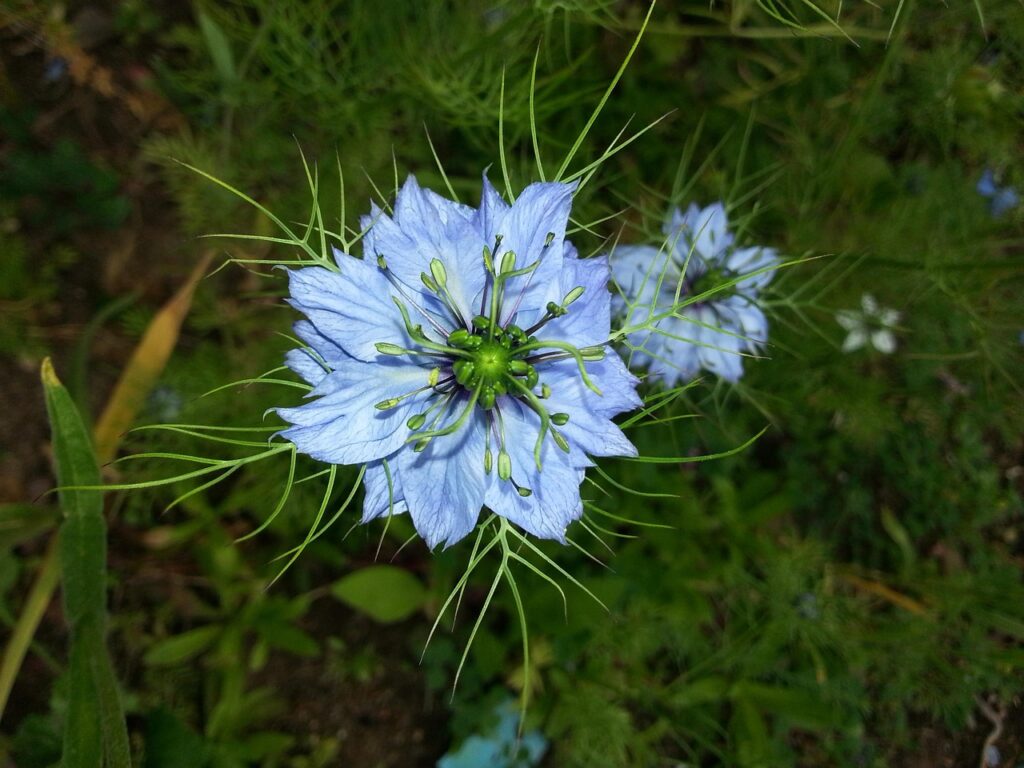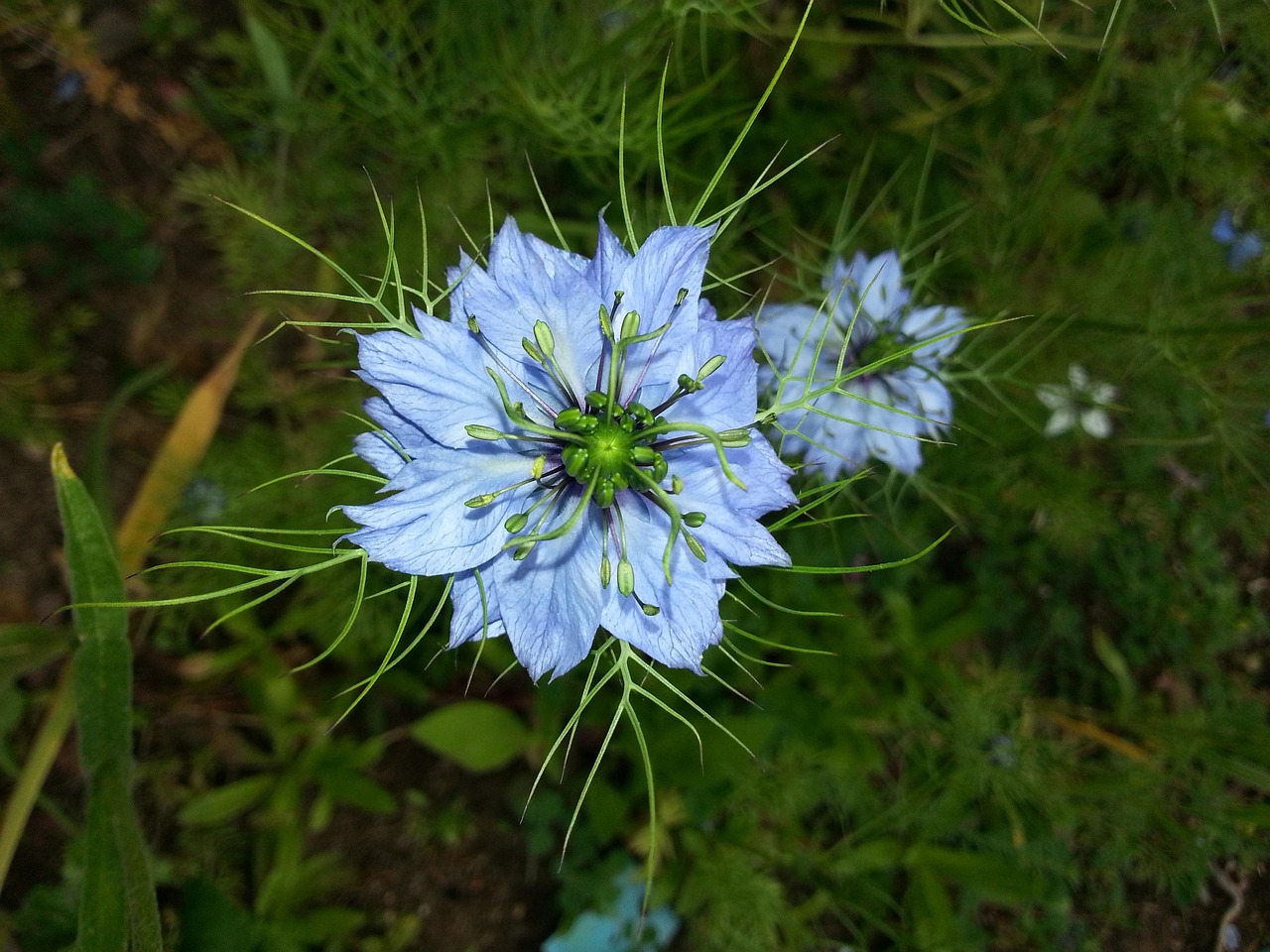
What is Nigella Sativa? Unveiling the Power of Black Seed
Nigella sativa, often referred to as black seed, black cumin, kalonji, or haba al-barakah (the blessed seed), is an annual flowering plant native to South Asia, the Middle East, and Southern Europe. The plant, scientifically classified under the family Ranunculaceae, produces fruits that contain numerous black seeds. These seeds have been used for thousands of years in traditional medicine and culinary practices across various cultures. But what is Nigella sativa exactly that makes it so revered?
This article aims to delve deep into the world of Nigella sativa, exploring its historical significance, chemical composition, potential health benefits, culinary uses, and any possible side effects. We will examine the scientific evidence supporting its traditional uses and provide a comprehensive overview of this fascinating plant.
A Historical Perspective on Nigella Sativa
The history of Nigella sativa is rich and deeply intertwined with ancient civilizations. Archaeological evidence suggests that black seeds were used as far back as ancient Egypt. Seeds have even been found in the tomb of Tutankhamun, highlighting their importance in the pharaoh’s afterlife. Ancient texts, including those by Hippocrates and Dioscorides, mention the therapeutic properties of black seeds. In Islamic tradition, Nigella sativa is highly regarded, with some believing it to be a cure for everything but death, as mentioned in prophetic medicine.
Throughout history, various cultures have utilized Nigella sativa for a wide range of ailments. From treating digestive issues and respiratory problems to promoting skin health and boosting the immune system, the applications of black seed are diverse and widespread. This long history of use provides a foundation for modern scientific investigation into its potential health benefits.
The Chemical Composition of Nigella Sativa
The therapeutic properties of Nigella sativa are attributed to its complex chemical composition. The seeds contain a variety of bioactive compounds, including:
- Thymoquinone (TQ): This is the most abundant and well-studied active compound in Nigella sativa. TQ exhibits potent antioxidant, anti-inflammatory, and anticancer properties.
- Thymohydroquinone (THQ): Another significant compound with similar properties to thymoquinone.
- p-Cymene: A monoterpene with anti-inflammatory and antimicrobial effects.
- Carvacrol: A phenol with antimicrobial and antioxidant properties.
- Nigellidine and Nigellicine: Alkaloids that contribute to the overall therapeutic effects.
- Fixed Oil: The oil extracted from Nigella sativa seeds is rich in unsaturated fatty acids, such as linoleic acid (omega-6) and oleic acid (omega-9), which are essential for human health.
- Vitamins and Minerals: Black seeds also contain essential vitamins and minerals, including vitamin A, vitamin C, calcium, potassium, and iron.
The synergistic interaction of these various compounds contributes to the multifaceted health benefits associated with Nigella sativa.
Potential Health Benefits of Nigella Sativa
Numerous studies have investigated the potential health benefits of Nigella sativa and its active compounds. While more research is needed to confirm these findings, the existing evidence suggests that black seed may offer therapeutic benefits for a variety of conditions:
Anti-inflammatory Properties
Thymoquinone, the primary active compound in Nigella sativa, has demonstrated significant anti-inflammatory effects in various studies. Inflammation is a key factor in many chronic diseases, including arthritis, heart disease, and cancer. By reducing inflammation, Nigella sativa may help to alleviate symptoms and prevent disease progression. Research suggests TQ can inhibit the production of inflammatory mediators, such as cytokines and prostaglandins.
Antioxidant Effects
Oxidative stress, caused by an imbalance between free radicals and antioxidants, can damage cells and contribute to aging and disease. Nigella sativa is rich in antioxidants, particularly thymoquinone, which helps to neutralize free radicals and protect cells from damage. Studies have shown that Nigella sativa can increase the levels of endogenous antioxidants in the body, further enhancing its protective effects.
Immune System Support
Nigella sativa has been shown to have immunomodulatory effects, meaning it can help to regulate and balance the immune system. Studies have indicated that black seed can enhance the activity of immune cells, such as natural killer cells and macrophages, which play a crucial role in fighting off infections and cancer. This immune-boosting effect may help to protect against a wide range of illnesses. [See also: Benefits of Black Seed Oil]
Respiratory Health
Traditionally, Nigella sativa has been used to treat respiratory conditions such as asthma, bronchitis, and allergies. Several studies have investigated the effects of black seed on respiratory health. Some research suggests that Nigella sativa can help to relax the airways, reduce inflammation, and improve lung function. A meta-analysis of clinical trials found that Nigella sativa supplementation significantly improved asthma control.
Blood Sugar Regulation
Nigella sativa may also play a role in regulating blood sugar levels. Some studies have shown that black seed can improve insulin sensitivity, reduce insulin resistance, and lower blood glucose levels. These effects may be beneficial for individuals with diabetes or pre-diabetes. However, it is important to note that Nigella sativa should not be used as a replacement for conventional diabetes treatment.
Cardiovascular Health
Research suggests that Nigella sativa may have beneficial effects on cardiovascular health. Studies have shown that black seed can help to lower blood pressure, reduce cholesterol levels, and improve blood vessel function. These effects may help to reduce the risk of heart disease and stroke. The antioxidant and anti-inflammatory properties of Nigella sativa also contribute to its cardioprotective effects.
Skin Health
Nigella sativa oil is often used topically to treat various skin conditions, such as eczema, psoriasis, and acne. The anti-inflammatory and antimicrobial properties of black seed can help to reduce inflammation, fight infection, and promote wound healing. Some studies have shown that Nigella sativa oil can improve skin hydration and reduce the appearance of wrinkles. [See also: Black Seed Oil for Skin]
Anticancer Potential
Several studies have investigated the anticancer potential of Nigella sativa and its active compounds, particularly thymoquinone. Research suggests that TQ can inhibit the growth and spread of cancer cells, induce apoptosis (programmed cell death), and prevent angiogenesis (the formation of new blood vessels that feed tumors). While these findings are promising, more research is needed to determine the efficacy of Nigella sativa as a cancer treatment.
Culinary Uses of Nigella Sativa
In addition to its medicinal properties, Nigella sativa is also widely used in culinary practices. The seeds have a distinctive pungent, slightly bitter flavor and a crunchy texture. They are commonly used as a spice in Middle Eastern, Indian, and Mediterranean cuisine. Black seeds can be added to breads, curries, stews, salads, and vegetable dishes. They are also used to flavor pickles and chutneys. The seeds can be used whole, ground, or toasted to enhance their flavor. The oil extracted from Nigella sativa seeds can also be used in cooking and as a salad dressing.
Possible Side Effects and Precautions
While Nigella sativa is generally considered safe for most people, it is important to be aware of potential side effects and precautions:
- Allergic Reactions: Some individuals may be allergic to Nigella sativa. Allergic reactions can range from mild skin irritation to severe anaphylaxis. If you experience any symptoms of an allergic reaction, such as hives, itching, swelling, or difficulty breathing, discontinue use and seek medical attention.
- Gastrointestinal Issues: In some cases, Nigella sativa may cause gastrointestinal issues such as nausea, vomiting, diarrhea, or stomach upset. These side effects are usually mild and temporary.
- Pregnancy and Breastfeeding: There is limited information available on the safety of Nigella sativa during pregnancy and breastfeeding. It is generally recommended to avoid using black seed during these periods or to consult with a healthcare professional before use.
- Drug Interactions: Nigella sativa may interact with certain medications, such as blood thinners and diabetes medications. If you are taking any medications, it is important to talk to your doctor before using Nigella sativa.
- Surgery: Nigella sativa may affect blood clotting. It is recommended to discontinue use at least two weeks before any scheduled surgery.
Conclusion
Nigella sativa, or black seed, is a remarkable plant with a rich history and a wide range of potential health benefits. From its historical use in ancient civilizations to modern scientific investigations, Nigella sativa continues to fascinate researchers and healthcare professionals. While more research is needed to fully understand its therapeutic potential, the existing evidence suggests that black seed may offer benefits for inflammation, oxidative stress, immune function, respiratory health, blood sugar regulation, cardiovascular health, skin health, and even cancer prevention. Whether used as a culinary spice or a medicinal remedy, Nigella sativa remains a valuable and versatile plant with a promising future.

